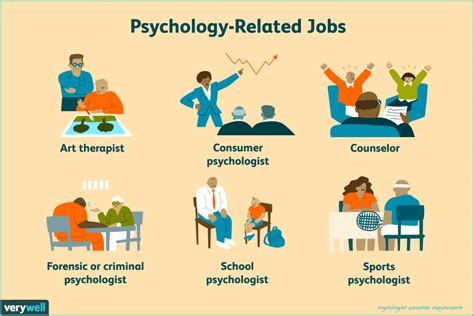Careers For Research Psychologists (8 Options)

Research psychologists play a crucial role in advancing our understanding of human behavior and mental processes. They conduct scientific studies, gather data, and analyze findings to contribute to the field of psychology. If you’re considering a career as a research psychologist, here are eight potential career paths to explore:
1. Academic Researcher
One of the most common career paths for research psychologists is working as an academic researcher. In this role, you would typically be affiliated with a university or research institution, conducting studies and publishing research papers. Academic researchers often have the opportunity to teach and mentor students as well.
2. Industrial-Organizational Psychologist
Industrial-organizational (I-O) psychologists apply psychological principles to the workplace. They study topics such as employee motivation, job satisfaction, and organizational behavior. As an I-O psychologist, you might work in human resources, consulting firms, or government agencies, helping organizations improve their work environments and employee well-being.
3. Neuropsychologist
Neuropsychologists specialize in studying the relationship between the brain and behavior. They assess and diagnose individuals with neurological disorders or injuries, such as traumatic brain injury or stroke. Neuropsychologists often work in hospitals, rehabilitation centers, or research settings, conducting assessments and developing treatment plans.
4. Forensic Psychologist
Forensic psychologists apply psychological principles to the legal and criminal justice systems. They may work in correctional facilities, courtrooms, or law enforcement agencies, conducting evaluations and providing expert testimony. Forensic psychologists may assess individuals for competency to stand trial, evaluate the risk of reoffending, or provide counseling to incarcerated individuals.
5. Health Psychologist
Health psychologists focus on the psychological aspects of health and well-being. They may work in healthcare settings, research institutions, or private practice, helping individuals adopt healthy behaviors, manage chronic illnesses, or cope with medical procedures. Health psychologists may also conduct research on topics such as the impact of stress on physical health or the effectiveness of health interventions.
6. Educational Psychologist
Educational psychologists study how people learn and develop in educational settings. They may work in schools, colleges, or educational research institutions, conducting assessments, developing interventions, and providing support to students, teachers, and parents. Educational psychologists may specialize in areas such as learning disabilities, gifted education, or school psychology.
7. Consumer Psychologist
Consumer psychologists study consumer behavior and decision-making processes. They may work in market research firms, advertising agencies, or corporate settings, helping businesses understand and influence consumer preferences. Consumer psychologists may conduct surveys, focus groups, or experiments to gain insights into consumer behavior and develop effective marketing strategies.
8. Social Psychologist
Social psychologists study how individuals’ thoughts, feelings, and behaviors are influenced by the social environment. They may work in research institutions, government agencies, or non-profit organizations, exploring topics such as prejudice, conformity, or group dynamics. Social psychologists often conduct experiments and surveys to understand social phenomena and develop interventions to promote positive social change.
Conclusion
These eight career options offer a glimpse into the diverse opportunities available for research psychologists. Whether you’re interested in academia, applied settings, or specialized areas of psychology, there are plenty of paths to explore. Consider your interests, strengths, and values to find the career that aligns with your goals.
Frequently Asked Questions
-
What education do I need to become a research psychologist?
To become a research psychologist, you typically need a doctoral degree in psychology. This usually involves completing a bachelor’s degree in psychology or a related field, followed by a master’s and doctoral program in psychology with a research focus.
-
What skills are important for research psychologists?
Research psychologists should have strong analytical and critical thinking skills to design and conduct studies, as well as interpret and analyze data. They should also have excellent communication skills to present their findings and collaborate with other researchers.
-
Is it necessary to specialize in a specific area of psychology?
While specializing in a specific area of psychology is not mandatory, it can enhance your career prospects and allow you to develop expertise in a particular field. Specializations can range from clinical psychology to cognitive neuroscience, depending on your interests and goals.
-
What job prospects are available for research psychologists?
Job prospects for research psychologists vary depending on the specific career path and the demand for research in that area. Academic research positions may be competitive, but there are also opportunities in applied settings, government agencies, and non-profit organizations.
-
How can I gain research experience as a student?
As a student, you can gain research experience by volunteering in research labs, participating in research projects, or completing internships. Seek out opportunities to work with faculty members or research institutions to gain hands-on experience in designing and conducting studies.
